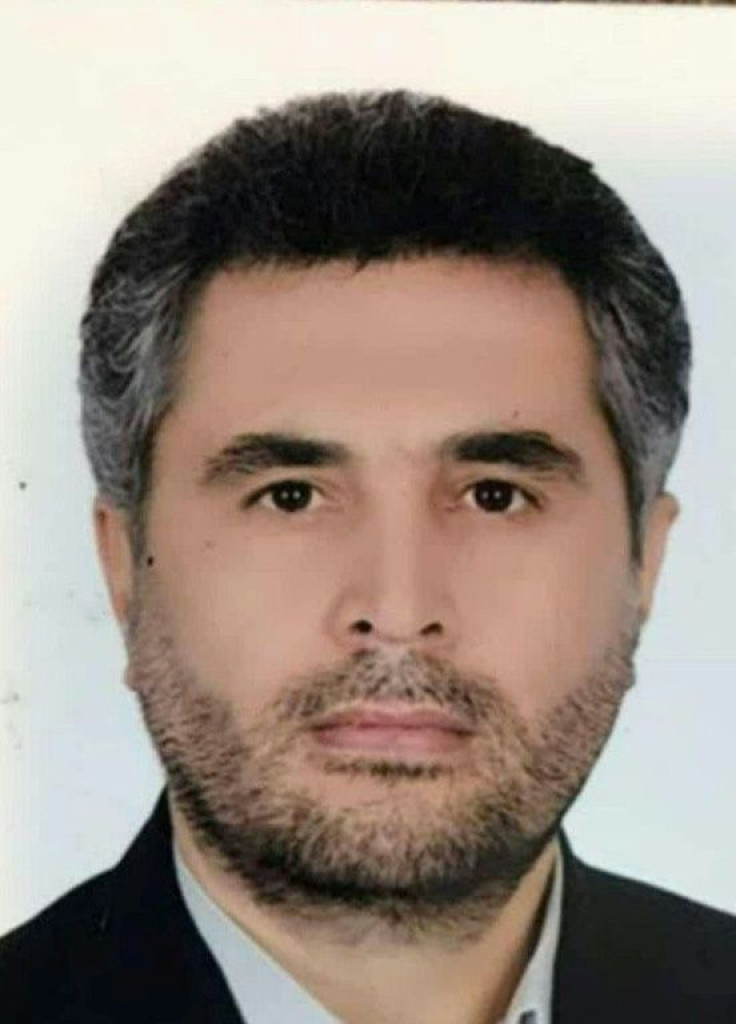Does Col Khodai's Assassination Herald A Regime Change In Iran?

If Iran's external aggressors exert so much influence to carry out a macabre murder within the country, is a regime change on the cards in the Persian Gulf nation?
How will Russia, which faces U.S.-led NATO resistance in Ukraine and China against which U.S. president Joe Biden mobilized Asian allies this week, react if their closest ally in the oil-rich Middle East is attacked, even if unprovoked?
Sayad Khodai, a colonel in the powerful Islamic Revolution Guard Corps (IRGC), was shot dead in the capital Tehran by two motorbike-borne assailants. That, too, in broad daylight when the colonel was sitting in a car outside his home.
Iran's official news agency IRNA said Col. Khodai was sprayed with five bullets at around 4 pm (11:30 GMT). He was killed right off a highly secure street home to Iran's parliament and media reports said that his wife was the first person to find his body.
Iran's aggressors are sending their threat messages loud and clear by targeting Col. Khodai, a member of the elite Quds Force, the IRGC's overseas arm, which a Shia-Iran uses to conduct its special operations in its fight against Israel and the U.S. on the one hand and the hostile Sunni Gulf nations, led by Saudi Arabia, the other.
Col. Khodai worked for Iran's operations dealing with sectarian war-hit Syria and Iraq. Of late, Israel has increased its military campaign against Syria. In a missile attack on May 21 by Israel, three people were killed near the Syrian capital, Damascus.
The U.S. has termed the IRGC and the Quds Force terrorist outfits for their alleged role in arming, financing and training terrorist groups across the Middle East and in the deaths of hundreds of U.S. troops in the region.
In January 2020, the U.S. killed Gen. Qasem Soleimani, Quds Force's top commander, in a drone strike in Iraq's capital, Baghdad. The killing of Soleimani was carried out at the direction of then U.S. President Donald Trump to deter future attacks allegedly being planned by Iran.
Though no group or country has claimed responsibility for the killing of Col. Khodai, the most high-profile on Iran's soil since Mohsen Fakhrizadeh, the top nuclear scientist in the country, who was shot dead in an attack on his convoy in November 2020 outside Tehran.
At least six Iranian scientists and academics have been either killed or attacked since 2010, mostly by assailants riding motorcycles, to scuttle Iran's nuclear program.
At least six Iranian scientists and academics have been either killed or attacked since 2010 to scuttle Iran nuclear weapons program.
Israeli media reported Col. Khodai was involved in planning attacks against the Jewish state worldwide. According to Haaretz newspaper, the deceased Iranian colonel was behind the plots to harm Israeli interests in Turkey, Africa and South America.
However, there was no official reaction from the Israeli government.
Iran President Ebrahim Raisi has blamed "the hands of global arrogance" - a reference to the U.S. and its ally Israel.
"....that revenge on criminals for the pure blood of this honorable martyr is inevitable," Raisi said.
When the U.S. assassinated General Soleimani , Iran retaliated by attacking a U.S. airbase in neighboring Iraq. Later, it mistakenly brought down a Ukrainian passenger plane, killing 176 passengers. The mission failed and caused mass heartbreak and anger at home. Iranians' distrust in the state leadership increased.
Israel and the U.S. treat Iran as an enemy over its endeavor to develop nuclear weapons, thereby questioning Israel's status as the only nuclear power in entire West Asia.
However, in 2015, Iran inked the Joint Comprehensive Plan of Action with the U.S, UK, France, Germany, Russia and China. The deal to restrict Iran's nuclear program also got the nod from the UN Security Council.
But the deal went topsy-turvy after U.S. unilaterally withdrew from it in 2018. But then the Trump administration reimposed sanctions on Iran to destroy its economy and threatened other nations that traded with Iran.
Col. Khodayari's killing took place as talks to revive the 2015 nuclear deal is stalled since March this year.
The sweeping sanctions, coupled with the covid-19 pandemic, have caused tremendous harm to the Iranian people.
Why the U.S, which is deserting the oil-rich Gulf region for the resource-rich East Asia and Southeast Asia, and Israel, which knows for sure that Iran does not pose an existential threat to the Jewish state, target Tehran, which has shown willingness to give up its ambitious nuclear weapons program in exchange of lifting U.S. sanctions?
By assassinating a high-ranking military official on domestic soil, Iran's aggressors are making concerted efforts to get Iranians to reject the current leadership of the country and the sanctions can do the rest.
Or is it a plan to put Iran against the much superior U.S. to see Tehran's eternal destruction?
Is the aggressor/s trying to draw Iran into the ongoing U.S.-led campaign against Russia and China which is staged in Eastern Europe and on the Indo-Pacific?
In any case, the removal of an influential IRGC figure on Iranian soil is more psychological than strategical because it manifests the growing reach and destabilising capacity of the aggressors.





